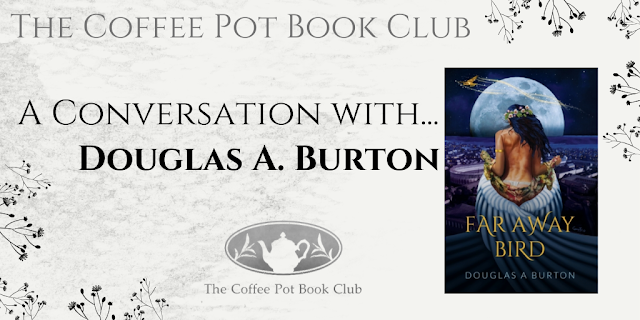This Day is Ours
By Gretchen Jeannette
Love is like war: easy
to begin but very hard to end.
The American Colonies, 1776.
The American Colonies, 1776.
As the flames of
revolution spread across a divided land, a shadowy figure prowls the city of
Philadelphia. Known only as Jack Flash, rebel highwayman, he preys on wealthy
aristocrats loyal to the British Crown. The unpredictable outlaw always manages
to stay one step ahead of his foes. Until the night he targets a Loyalist lady
whose fiery spirit could spell his doom.
Alexandra Pennington believes she has her future well planned when a chance encounter turns her world upside down. Betrothed to a dashing king's man suited to her in every way, the young widow becomes entangled with an unrefined rebel fiercely opposed to British rule. Against all reason, she finds common ground with an enemy of the Crown. The sensible course for her is clear, but her bond with the notorious rogue will test her loyalty not only to her king but also to the man she vowed to marry.
From the drawing rooms of Philadelphia to the battlefields of an emerging nation, one woman stands between two men fighting for love and honor in a war destined to change all their lives forever.
Alexandra Pennington believes she has her future well planned when a chance encounter turns her world upside down. Betrothed to a dashing king's man suited to her in every way, the young widow becomes entangled with an unrefined rebel fiercely opposed to British rule. Against all reason, she finds common ground with an enemy of the Crown. The sensible course for her is clear, but her bond with the notorious rogue will test her loyalty not only to her king but also to the man she vowed to marry.
From the drawing rooms of Philadelphia to the battlefields of an emerging nation, one woman stands between two men fighting for love and honor in a war destined to change all their lives forever.
"He's committed eleven robberies in
the past three months. Last night alone, he stole a necklace worth a small
fortune… He preys on Loyalists. It's obvious he's one of those
Independents."
Well, at least they had one thing right. Jack Flash was all for
an America independent of British rule, and if the wealthy aristocrats of
Philadelphia, who were loyal to the Crown, could be persuaded to part with a
few of their glittering jewels to help the cause then so much the better.
But last night, Flash had made a mistake. He had strayed where
he should not. He had almost been beguiled by a woman's fragrance scent and a
desperate desire to steal not only her jewellery but also a kiss. Fool that he
was — every thief worth his salt knew that a man who could rob successfully
while kissing a pretty girl was not giving the kiss the attention it deserved.
Mrs Alexandra Pennington missed her late husband dreadfully, but
perhaps now she would be able to marry for love, and not out of necessity.
Charles Villard was charming, handsome, and attentive. Alexandra thought she
could be happy with a man like him. That was until she found herself pinned
against her bedpost with a pistol caressing her cheek. Alexandra felt violated,
but more than that she felt an incredible rage because the necklace Jack Flash
had stolen was a cherished wedding gift from her late husband, John.
Chance would have it that the thief and the widow would meet
again, and that chance meeting would change the course of their lives
forever...
From a daring robbery to The Battle of Monmouth in 1778, This
Day is Ours by Gretchen Jeannette is an enthralling Historical Romance that not
only threatens to mesmerise, but does.
Written with a poetic verse and a romantic, yet tender, sensuality, This Day is Ours has a lot to recommend it. With an impressive
sweep, Jeannette has not only penned an irresistible romance, but she has also
composed a story that encompasses the American War of Independence in all its
vivid detail.
Jeannette does not romanticise the American Revolution. With a
keen sense of time and place, Jeannette has depicted the relentless misery of
war — from the sheer terror of battle to the frustration of red-tape which
stopped supplies from going to where they were needed. But Jeannette also
explores the camaraderie between the men, the persistent courage of those who fought
for the right to rule their country without interference. Their patriotic cause
inflamed them. Even when it seemed that their cause was lost, they did not give
up. They fought on until victory was theirs. The historical detail of this book
has to be commended. I can only imagine how many hours Jeannette has spent
researching this era for she has captured the very essence of America during
this period of volatile history. Kudos, Jeannette. Kudos, indeed.
This book, of course, would be nothing without the fabulous
characters that grace the pages. I fell totally in love with Jack Flash from
the opening chapter. He is something of a contradiction. He is a thief, but he
has more honour in his little finger than some of the other characters we meet
in this book. Flash's gentle nature is at odds with his occupation, but at the
same time, it is somehow fitting. Jeannette has given her readers a protagonist
that they can really get behind. Flash is an endlessly fascinating character
whom I enjoyed reading about very much.
I initially feared, as I do with all Historical Romances,
that Alexandra Pennington was going to be one of those wilting heroines, whose
wit and intelligence is somehow compromised by the era in which she lives, or,
worse still, she was going to be one of those strong independent women who has
very modern views that would be totally out of place to the century the book is
set. Thankfully, Jeannette has given us a
heroine that is neither wilting nor exceedingly modern. Alexandra sits very
comfortably in 18th Century Philadelphia. Alexandra's story was endlessly
fascinating. Alexandra risks everything by listening to her heart and falling
for the roguish hero of this story. She risks not only the scandal, but during
such a violent and uncertain time, Alexandra risks a great deal more. I thought
Jeannette depicted Alexandra with a wonderful skill and diligence. I could not
help but like Alexandra. She is a courageous woman who is faced with impossible
choices which could have terrible consequences for herself and those she loves. I thought her depiction was
brilliant and in keeping with this era and this story.
I am not going to talk about the antagonist of this tale for I
do not want to give away any spoilers, but I would like to mention Alexandra's
brother-in-law from her first marriage, George Pennington. George is such a
lovable scoundrel, who is incredibly opinionated, which lands him and those
around him in trouble more than once. Yet, he is utterly devoted to Alexandra.
George is like a father to her. Alexandra is his beloved, and he just wants to
see her happy and safe. I thought George's depiction was wonderful. He is
superbly drawn — a real larger than life character.
As I approached the 2nd part of this book, I had a moment of
fear that Jeannette would lose the momentum, lose the romance that had carried
this story forward so beautifully and so compellingly. How would the lovers
survive as war tore them apart? But I need not have feared, for the brilliance
of this book is in the writing. It is in Jeannette's captivating narrative, her
skill at depicting realistic and believable characters. Jeannette's ability as
an author to grasp all aspects of the human condition — from love to hate and
everything in between, makes this book an absolute triumph from start to
finish. I fell in love with this book in the opening chapter, and I continued
that love affair right up until the very last full stop. This Day is Ours is
the kind of book that deserves the highest of accolades, for it is fresh, it is
vivid, and it is absolutely enchanting.
If you are a lover of quality Historical Romance with a
realistic setting and a tautly gripping plot then you will love This Day is
Ours by Gretchen Jeannette. This is the kind of book that demands to be read
again and again and again until the spine breaks and the pages fall out. It is
deserving of a place on your bookshelf.
I Highly Recommend.
Review by Mary Anne Yarde.
The Coffee Pot Book Club.
Pick up your copy of
The Day is Ours
Gretchen
Jeannette
 Gretchen
Jeannette was born in 1955 in Wilmington, Delaware. She lives and works in
Chester County, Pennsylvania, an area rich in Revolutionary War and Colonial
American history. Her enduring interest in 18th Century America began at a
young age, inspired by the novels of Dale Van Every and Allan Eckert, whose
timeless tales of adventure and romance capture the essence of early American
lore. Eager to read more such stories, to her disappointment she had trouble
finding them on bookshelves, so she decided to write one of her own. Thus began
a journey fueled by her passion for breathing life into history through
believable characters, authentic historical details, and plots woven with
adventure, romance and suspense.
Gretchen
Jeannette was born in 1955 in Wilmington, Delaware. She lives and works in
Chester County, Pennsylvania, an area rich in Revolutionary War and Colonial
American history. Her enduring interest in 18th Century America began at a
young age, inspired by the novels of Dale Van Every and Allan Eckert, whose
timeless tales of adventure and romance capture the essence of early American
lore. Eager to read more such stories, to her disappointment she had trouble
finding them on bookshelves, so she decided to write one of her own. Thus began
a journey fueled by her passion for breathing life into history through
believable characters, authentic historical details, and plots woven with
adventure, romance and suspense.
Connect with Gretchen: Website • Twitter • Goodreads.














